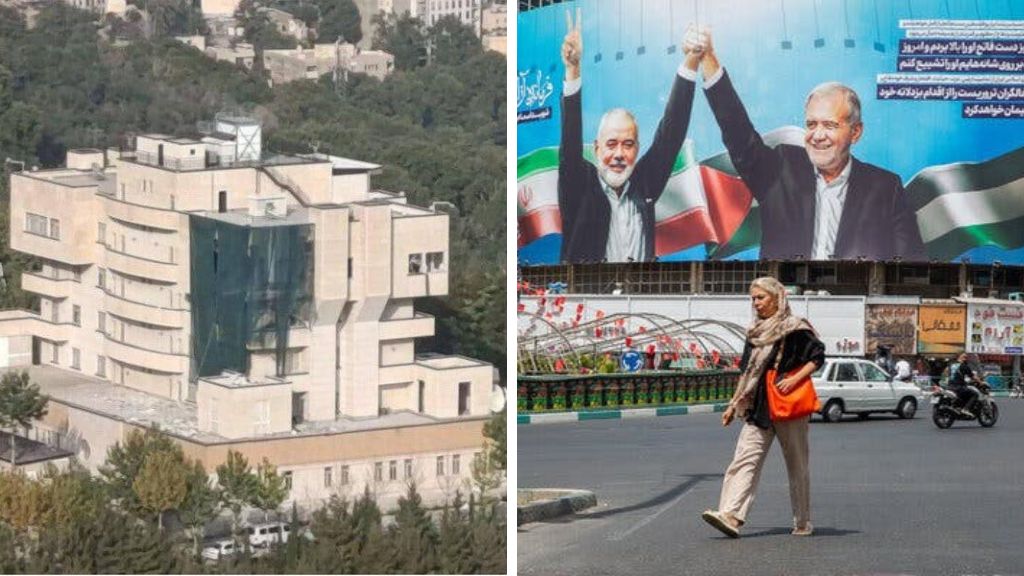Iran has begun a sweeping investigation into the assassination of Ismail Haniyeh, highlighting a significant Iran security breach. Over two dozen people, including senior intelligence officers, military officials, and staff workers at a military-run guesthouse in Tehran, have been arrested. This comes in response to a massive and humiliating security failure that allowed the killing of a top Hamas leader, according to two Iranians familiar with the investigation.
The high-level arrests followed the killing of Haniyeh in an explosion early Wednesday. He had led Hamas’s political office in Qatar and was in Tehran for the inauguration of Iran’s new president, staying at a guesthouse in northern Tehran. The fervor of the response underscores the devastating Iran security breach, occurring at a heavily guarded compound within hours of the new president’s swearing-in ceremony.
“The perception that Iran can neither protect its homeland nor its key allies could be fatal for the Iranian regime,” said Ali Vaez, the Iran director for the International Crisis Group.
Officials in both the Middle East and Iran said the deadly blast resulted from a bomb planted in Haniyeh’s room up to two months before his arrival. Iranian officials and Hamas accused Israel of the assassination, a view shared by several U.S. officials. Israel, which aims to destroy Hamas’s capabilities, has not acknowledged responsibility for the bomb.
The Revolutionary Guards Corps’ specialized intelligence unit for espionage is leading the investigation, hunting down suspects linked to the assassin team. The Guards announced that the “scope and details of this incident are under investigation and will be announced in due course.” No details of the arrests or the explosion’s cause have been made public yet. Iran’s supreme leader, Ayatollah Ali Khamenei, has ordered a strike on Israel in retaliation.
The intensity and scope of the Guards’ investigation show how the Iran security breach has shocked the country’s leadership. The deadly blast also killed Haniyeh’s Palestinian bodyguard, marking a significant collapse of intelligence and security.
The assassination delivered a stark realization that if Israel could target such an important guest under heightened security at a highly secure compound, then no one is safe. “This security breach requires different policies and strategies,” said a political analyst in Tehran.
At Haniyeh’s funeral in Tehran, Khamenei was surrounded by a tighter circle of bodyguards than usual. He performed an Islamic prayer ritual on the body and briefly greeted Haniyeh’s son before leaving.
Iran and Israel have been engaged in a covert war for years. Israel has assassinated over a dozen nuclear scientists and military commanders inside Iran, including the top nuclear scientist, Mohsen Fakhrizadeh, in 2020. Israel has also sabotaged infrastructure and conducted attacks on military and nuclear sites. Iran has responded by firing top intelligence chiefs and arresting military commanders, announcing multiple times that it has uncovered Israeli spy networks.
Four days before Haniyeh’s assassination, Iran’s minister of intelligence, Seyed Esmaeil Khatib, stated that Iran had “disintegrated and destroyed a network of Mossad infiltrators.” However, Haniyeh’s assassination shocked the nation.
After the attack, Iranian security agents raided the guesthouse compound, placing all staff members under quarantine and arresting some. They confiscated all electronic devices and interrogated senior military and intelligence officials. The agents inspected surveillance cameras and guest lists, examining the movements of staff members.
The investigation also extended to Tehran’s airports, where agents reviewed months of footage and flight lists. Iran believes Mossad’s assassin team members are still in the country and aims to arrest them. Security protocols for senior officials have been completely overhauled, with some officials moved to different locations.
Former president Hassan Rouhani stated that Israel was targeting Iran’s security and stability at the start of a new government. He called for cooperation among all security, intelligence, and military branches to strengthen their capabilities.


